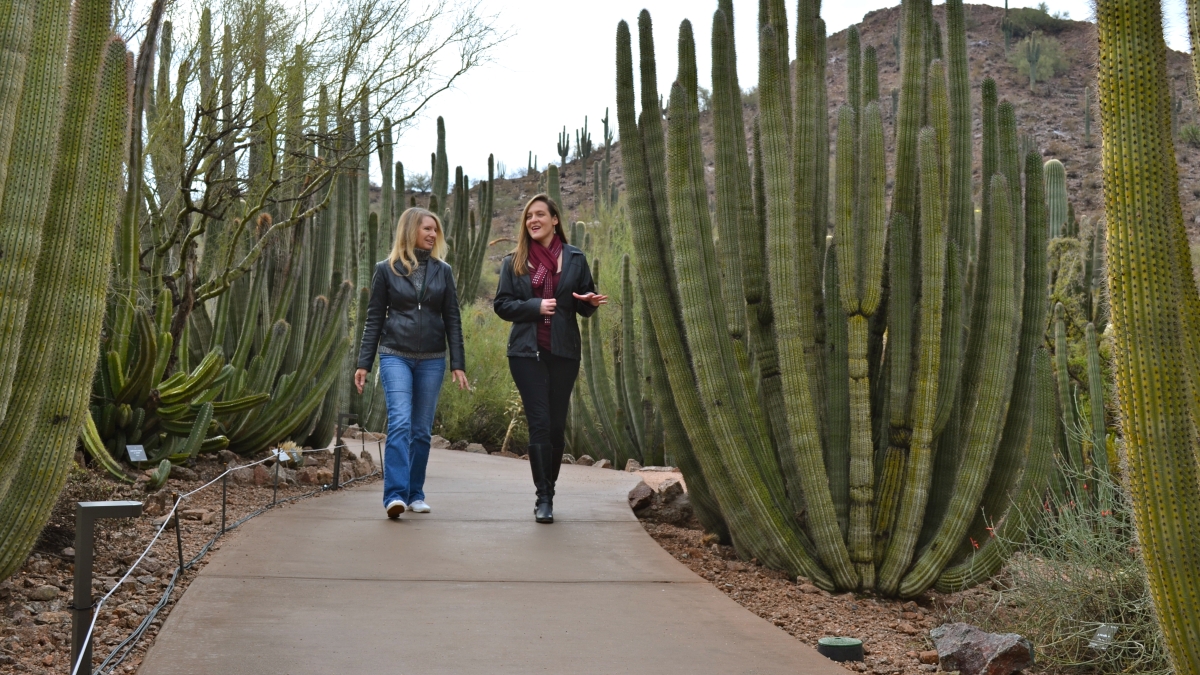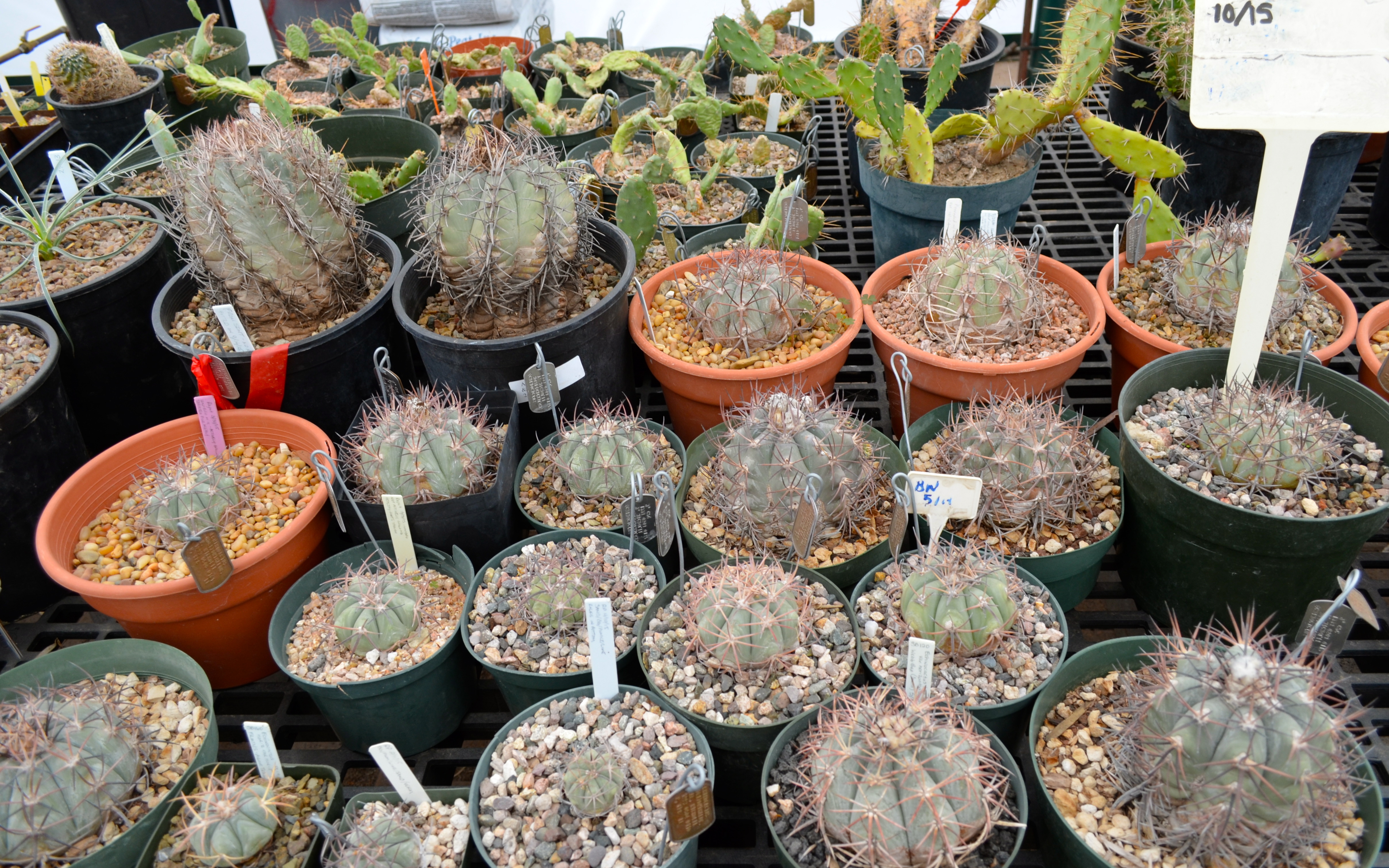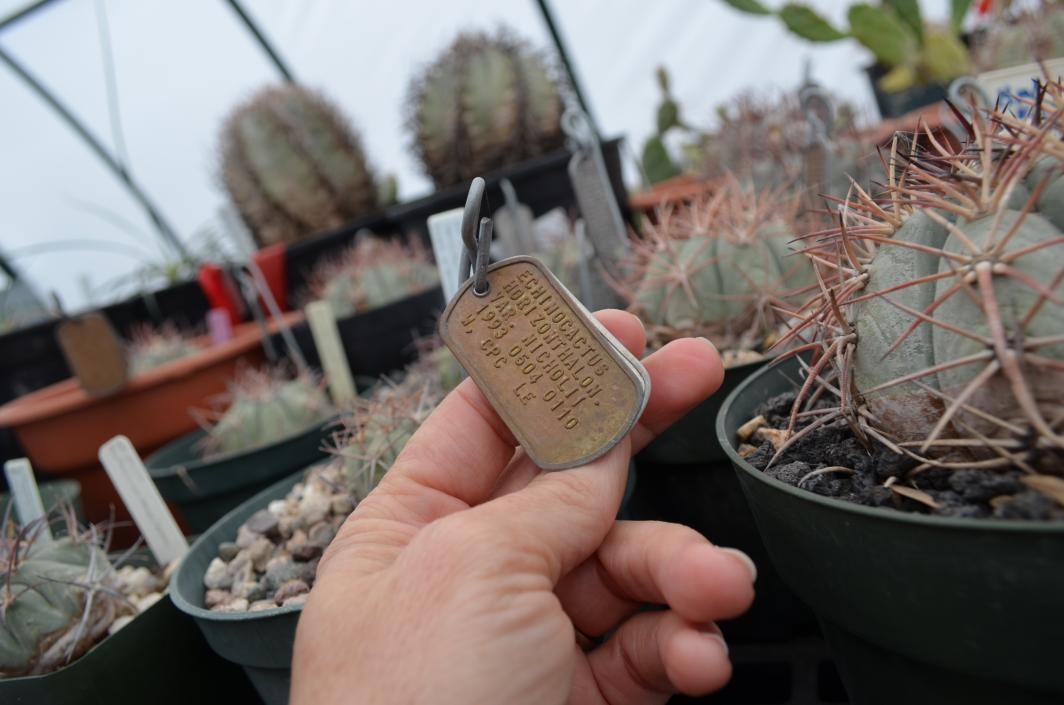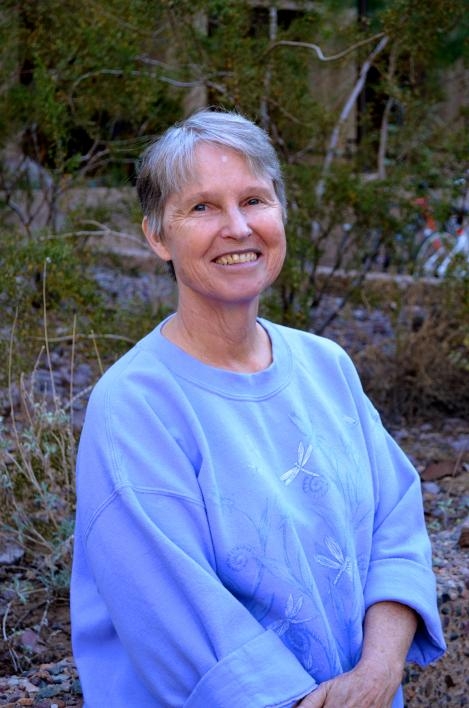A partnership in plant biology and conservation

Kimberly McCue (left) and Tyna Yost discuss a research project at the Desert Botanical Garden. Photo by Sandra Leander/ASU
Quick — without thinking about it, name an endangered animal. Name two, three or even four. Easy?
Now, name an endangered plant. Two? Three? For many people, that’s not as easy.
These basal organisms on the tree of life provide us with practically everything we need to survive in some way or another. However, in the field of biology, the importance of a particular topic doesn’t necessarily mean the general public will pay much attention.
Plants and their conservation lack a certain “sex appeal” in the mainstream. Over the past several decades, this has been reflected at many universities as botany degrees have declined and interest has shifted to the study of plants at a molecular level.
But the demand for botanists and experts in endangered plant species has not waned. Indeed, there is an even greater need as the world faces the effects of global warming.
“Plants are an incredibly important part of the ecosystem,” said Julie Stromberg, professor with Arizona State University’s School of Life Sciences. “Unfortunately, people don’t really think about the fact that plants contribute oxygen, the food we eat, the materials and fibers we use, as well as medicines. As a society, we need to look at plants as the key elements that sustain us, spiritually as well as in more tangible ways.”
To address the shortage of plant experts, the school recently launched a new master’s degree program in plant biology and conservation. The program is part of a national trend, where a leading botanical garden partners with a university’s biology department to offer unique teaching and hands-on research experiences.
ASU is on the cutting edge of that trend, joining forces with the Desert Botanical Garden to offer the new degree. Now, plant conservation may find some revitalized support.
“This seems like a real ‘win-win,’” said Kim McCue, co-director of the degree program and program director of Conservation of Threatened Species and Habitats at Desert Botanical Garden. “By having a university collaborate with a botanical garden, we have greater ability to train people in the botanical sciences, and we know firsthand that these people are worth training. We live in a unique ecosystem in the Southwest — the Sonoran Desert. It makes sense to offer a master’s degree in plant science in a place that has such value,” she added.

Many endangered plant species are studied and cared for through the ASU/Desert Botanical Garden master's degree program partnership. Photo by Sandra Leander/ASU
Botanical garden researchers can share their knowledge through guest lectures, lab experiences and graduate committees. These resources are unique and would be difficult to obtain anywhere else. The students can obtain practical experience while getting their feet wet in real-world research projects.
Tyna Yost, a recent graduate of the program, has already secured a position with the U.S. Forest Service, focusing on aspects of the National Environmental Policy Act.
“I started taking classes for the nursing program and quickly discovered that plants are much better patients. I like to say that they’re smarter than us,” said Yost. “They can make their own food, depending only on light and carbon dioxide. Their chemical defenses and rate of adapting to different environments is just amazing. So I call them the higher species.”
Stromberg, ASU’S director of the program, stresses the importance of offering a master’s degree in the field of plant biology and conservation. While doctorate degrees are important, she said master’s programs like these are excellent options to gain experience and move into the workforce more quickly. Many jobs in the plant world are fit for graduates of master’s programs, such as those offered by state and federal agencies.
“There are several strengths to our master’s program,” said Stromberg. “First is our focus on endangered plant species. If you look at the IUCN Red List of threatened species, you will find that most plant species have yet to be assessed. Many are declining, but few are being tracked.
“Second, we focus on restoring plants and habitats — in particular, endangered ecosystems. The Desert Botanical Garden can participate by providing seeds, propagated plants and botanical expertise.
“Third, our program is strong in systematics and understanding phylogenetic relationships, as well as in ecophysiological studies — examining the roles plants play in their ecosystems and the mechanisms that adapt them to their environments. We also focus on ethnobotanical studies — understanding how people and plants are co-evolving through time.”
Degrees like this are good news in the world of plant conservation. They provide companies and organizations with more knowledgeable people who care about securing the future of plants.
Also, Stromberg and Yost agree that too much conservation attention is focused on issues such as invasive species. They argue that endangered species as well as dominant plants that do most of the “work” in ecosystems should have more of the botanical limelight.
“It’s easy to point the finger at certain plant species and say they are the cause of adverse changes, when instead, they might simply be a reflection of broader environmental changes such as climate shifts or increasing urbanization,” Stromberg said. “It’s time to move beyond eradicating so-called ‘bad’ plants and preserving ‘good’ ones. We need to recognize the value of all plant species and embrace the complexity of the ecological relationship between plants and people.”
Yost specializes in endangered plant species. She hopes that with the knowledge she gains from the new master’s degree, she will be able to help maintain these life-forms that selflessly provide for us and help cultivate greater attention to the fact that we must work harder to conserve these valuable resources.
“I think it goes back to that awareness and where our priorities are,” said Yost. “Even with all our technology, when it comes down to it, as a species we need certain things to survive. Food, water, medicine. Plants are a part of all that. We have to keep that in mind.”
McCue agrees.
“We can do all the great science in the world, but if the greater public doesn’t know why it’s important or how amazing these plants are, they won’t care. And if they don’t care, you’re not going to get anywhere,” McCue said. “Our partnership with ASU is a major component of that, and I’m just thrilled by it.”
Written by Devin Phillips
For more stories like this one, see the ASU School of LIfe Sciences Magazine.
More Science and technology

Hack like you 'meme' it
What do pepperoni pizza, cat memes and an online dojo have in common?It turns out, these are all essential elements of a great…

ASU professor breeds new tomato variety, the 'Desert Dew'
In an era defined by climate volatility and resource scarcity, researchers are developing crops that can survive — and thrive —…

Science meets play: ASU researcher makes developmental science hands-on for families
On a Friday morning at the Edna Vihel Arts Center in Tempe, toddlers dip paint brushes into bright colors, decorating paper…





